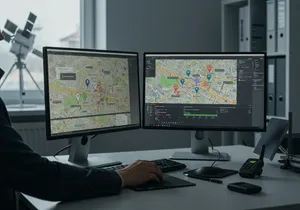Advanced GPS Tracking Capabilities
- Real-time location tracking with sub-meter accuracy positioning
- Multi-sensor data integration from accelerometers and gyroscopes
- Advanced analytics processing terabytes of fleet data daily
- Predictive maintenance alerts based on vehicle performance patterns
- Automated reporting systems generating insights from operational data
- Cloud-based platforms ensuring 99.9% uptime and data accessibility
- Mobile applications providing field access to critical fleet information
- Integration capabilities connecting with existing business management systems










